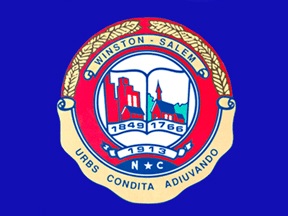The Olson Group, Ltd. (OGL) supported the Winston-Salem/Forsyth County Office of Emergency Management in the management of its CCTA Grant by identifying CCTA emergency preparedness gaps, updating emergency operations plans, exercising those updated plans and current plans, and facilitating the identification, scheduling, and delivery of training opportunities in alignment with agreed-upon CCTA improvement priorities. OGL’s support required the use of innovative and well-coordinated efforts to respond to planning, training, and exercise needs within the reasonably short timeline allowed by the CCTA Grant. OGL provided project management services to ensure all required local, state, and federal requirements for grant administration and documentation are complete and accurate.
In 2018, OGL conducted a CCTA gap analysis project for Winston-Salem, Forsyth County, and surrounding jurisdictions. OGL began the effort by creating a gap survey and workshop series for all identified stakeholders. The survey gathered stakeholder input regarding planning, training, exercise, and capability gaps related to a CCTA. Survey data was collated and analyzed, and OGL conducted a series of three Gap Analysis Workshops to discuss CCTA gaps and identify potential improvement opportunities to increase regional response capability. Workshop data was analyzed, and a Workshop Report was created to set priorities for planning, training, and exercises to close identified capability gaps.
In early 2019 OGL worked with Winston-Salem/Forsyth County regional stakeholders to establish a CCTA Training Management Program to identify, approve, schedule, and manage training opportunities to close CCTA Workshop identified gaps improve CCTA response capability. The Training Management Program includes multiple offerings of stakeholder-determined incident command-related training (ICS 100-400, ICS-EOC Interface, and EOC Operations) and specialized training to improve the capabilities of the various response stakeholders. Thirteen technical training courses such as Alert, Lockdown, Inform, Counter & Evacuation “ALICE” Training; Threat Assessment in an Educational Setting; Active Shooter Incident Management (Basic & Advanced); Multi-Assault, Counter-Terrorism Action Capabilities (MACTAC) have been scheduled while dozens more are pending approval. A Training Project Orientation conference was held to provide the regional stakeholders an overview of the training solution sets developed to address identified gaps and inform stakeholders how they could access and suggest training relevant to the CCTA grant’s objective of improving and enhancing coordinated regional response to complex terrorist attacks.
In March 2019, OGL began updating and revising the City of Winston-Salem and Forsyth County all-hazards Emergency Operations Plan (EOP) and supporting annexes tailored to streamlined, actionable, and easy capabilities to use and maintain and is consistent with national guidance and standards. The updated plan will help reflect the complex coordinated terrorist attack planning, training, and exercise in the region. OGL uses the National Plan Development Process (NPDP) to organize and execute all-hazards planning efforts. This process, developed by the Department of Homeland Security, is the newest national planning standard and consistent with the other recognized planning procedures and standards, including National Incident Management System (NIMS), Comprehensive Preparedness Guide 101 (CPG 101), and the National Response Framework (NRF).
The plan updates and revisions move away from the traditional ESF construct towards the more agile and scalable ICS structure for municipal and county governments. This creates a plan structure that is easier to maintain, increases usability, and creates more actionable processes and procedures versus a more policy-oriented document. The number of annexes is dramatically reduced and replaced with hazard-specific action guides based on role/function and derived from the City’s Threat and Hazard Identification and Risk Assessment (THIRA) or Hazard and Vulnerability Analysis (HVA). Having all plans (EOP, COOP, Hazard Mitigation, etc.) tied to the identified hazards creates a more consistent approach to planning and lends itself to Emergency Management Accreditation Program (EMAP) standards.
Additionally, OGL is leveraging Previstar’s CEMPlanner software for EOP update and revision. CEMPlanner is a web-based collaborative platform that facilitates the planning process (based on FEMA’s Comprehensive Preparedness Guide (CPG)) to create and maintain standards-based plans.
In February 2019, OGL developed an exercise program for Winston-Salem, Forsyth County, and surrounding jurisdictions. The program was designed to support and enhance the objectives of the Training Coordination and Planning Programs. Exercises help training by providing a mechanism to solidify knowledge and skillsets obtained during training iterations. Exercises support planning by providing an opportunity for stakeholders to test newly developed/newly updated plans against a realistic CCTA scenario. Stakeholders are introduced to the plan(s) and techniques that improve through participant feedback and the After-Action Report/Improvement Plan process. The program design ensures all exercise solutions work together as a cohesive and consistent whole instead of individual and “siloed” efforts.
Winston-Salem, Forsyth County, and surrounding jurisdictions have set an aggressive schedule of exercises, often with short planning horizons, for completion by the summer of 2020. Each exercise is designed to discuss, validate, or test current or new plans relating to CCTA response capability to identify strengths and identify areas for further improvement.
The Winston-Salem/Forsyth County Schools Senior Leadership Tabletop Exercise was conducted on July 31, 2019. The coordinated active school and school bus shooters exercise audience was School Principals, School Administration, and local/regional emergency responders. National Preparedness Goal core capabilities tested and evaluated included planning; operational coordination; on-scene security, protection, law enforcement; mass care services; and public information and warning.
The High Point Market Tabletop Exercise was conducted on August 8, 2019. The audience for the coordinated active shooter, rail hazardous materials, and vehicle use as a weapon exercise included Market staff, Market building owners, and local/regional emergency responders. National Preparedness Goal core capabilities tested and evaluated included planning; operational coordination; on-scene security, protection, law enforcement; public health, healthcare, emergency medical services; environmental response/health and safety; and operational communications.
The Piedmont Triad International (PTI) Airport Aviation Security Tabletop Exercise was conducted on October 15, 2019. The coordinated active shooter and improvised explosive device exercise audience included Airport Security, Federal Partners, and local/regional emergency responders. National Preparedness Goal core capabilities tested and evaluated included planning; operational coordination; on-scene security, protection, law enforcement; screening, search, detection; access control and identity verification; and operational communications.
The Winston-Salem/Forsyth County Airport (Smith-Reynolds) Full-Scale Exercise was conducted on November 9, 2019. The coordinated aircraft crash, active shooter, and hostage exercise audience included Airport Emergency Plan designated response agencies, specialized law enforcement teams, and local/regional emergency responders. National Preparedness Goal core capabilities tested and evaluated included planning; operational coordination; on-scene security, protection, law enforcement; fire management and suppression; and public health, healthcare, and emergency medical services.
In 2021, OGL conducted an EOC Area Command Training, Advanced ASIM training, a Cybersecurity Tabletop Exercise, and Domestic Terrorism and Hate Group Training.


